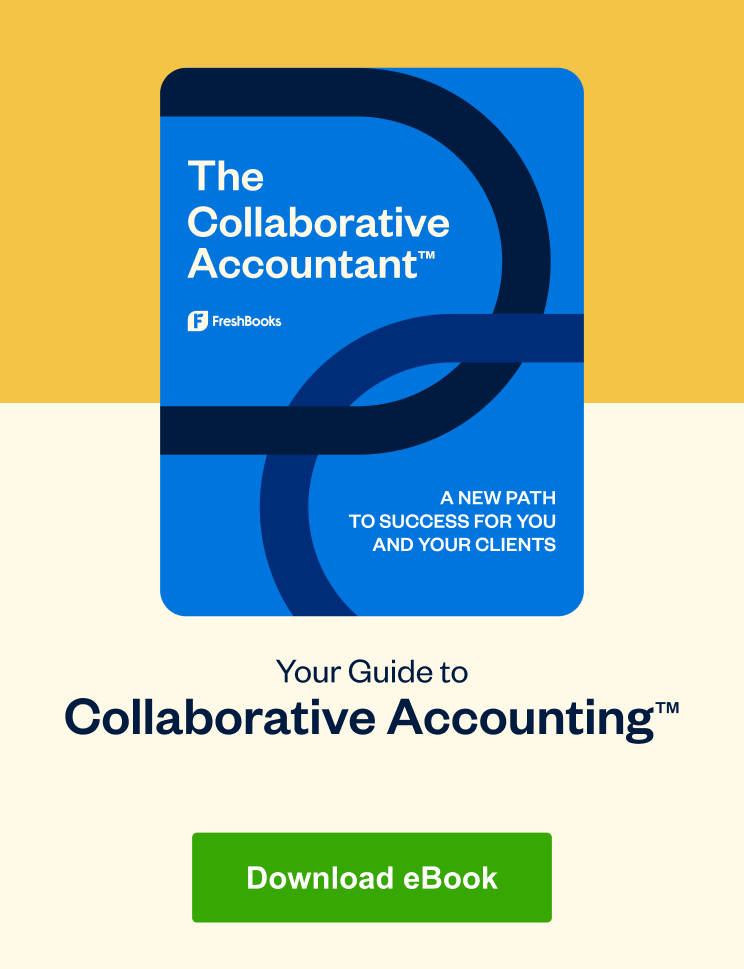Cast your eyes forward to what the future holds—and how you can prepare your accounting firm for it

The accounting industry is constantly shifting—and it’s all for the better! As the new year approaches, accounting and finance professionals like you will be considering new technology, innovative practices, and a fresh look at collaborating with clients. Regulatory updates, regulatory compliance, and shifting business dynamics are also accelerating, so it’s smart to stay on top of what’s coming down the pipe.
Here’s an in-depth look at some game-changing trends that will shape the accounting industry in 2025—and how you might integrate them into your business.
Table of Contents
But First: The Evolution of the Accounting Profession
The accounting profession is undergoing significant changes, driven by technological advancements, shifting business landscapes, and evolving regulatory requirements. As the industry continues to transform, accounting professionals must adapt and develop new skills to remain relevant.
Understanding the Shifts in the Industry
The accounting industry is experiencing a major shift, with a growing emphasis on technology, data analytics, and advisory services. Accounting professionals prepare to navigate this changing landscape, leveraging their expertise to provide strategic guidance and support to clients. This shift means that traditional accounting functions are evolving, and professionals need to pivot towards advanced data analytics tools to analyze financial data and offer actionable insights. By staying ahead of these changes, you can position yourself as a valuable asset to your clients and your firm.
1. Increased Automation and AI Integration in the Accounting Industry
Automation will continue to transform the accounting profession by eliminating repetitive, time-consuming tasks. And AI-powered tools will streamline data entry, financial reporting, and other bookkeeping tasks. Accounting automation transforms financial processes and enhances efficiency, addressing industry challenges such as talent retention and regulatory compliance.
When AI and automation reduce some of the tedious work, accounting professionals can focus on higher-value activities, such as advisory services, financial analysis, and strategic decision-making. The impact of technology and AI on traditional accounting tasks is reshaping accounting processes, requiring accountants to develop technical proficiency to manage these digital tools effectively.
Takeaway for 2025
Embrace AI and automation tools to make data analysis increase efficiency and accuracy. Accounting automation is streamlining financial processes and addressing industry challenges such as talent retention and regulatory compliance.
2. More Demand for Client Advisory Services
The popularity of client advisory services (CAS)—becoming a trusted advisor to clients by providing deeper business insights—has surged in recent years. According to the 2022 CPA.com and AICPA PCPS CAS Benchmark Survey, CAS practices reported a median growth rate of 16%—continuing a double-digit growth trend over the previous 5 years. And here’s the best news: accounting firms that provide more advisory services see rising revenue and higher margins than other accounting services. In 2025, more accounting firms are expected to embrace CAS.
FreshBooks’ Collaborative Accounting™ framework makes it easier for both accounting professionals and their clients. By providing a shared workflow, business owners can take charge of managing some of their finances. With the obligation of low-level admin tasks lifted, accounting and finance professionals have more capacity to deliver data-driven business growth strategies and financial planning advice to their clients.
Takeaway for 2025
Roll out Collaborative Accounting to your clients so you can offer more strategic advisory services and strengthen your client relationships.
3. Rise of Data Analytics to Make Strategic Decisions with Financial Data
Data is a powerful asset for businesses, and as an accounting professional, you’re in a prime position to harness it. Advanced data analytics tools allow accounting teams like yours to dive deeper into financial data, identifying trends and patterns that can drive strategic decision-making for your business clients. You can leverage these insights to give your clients a clearer picture of their financial health, optimize costs, and identify new growth opportunities.
For example, by analyzing cash flow trends in financial statements, you can help a small business client improve their liquidity management. Or, you could analyze their profitability across different products or services and advise them on which areas to focus their efforts.
Takeaway for 2025
By 2025, data-driven insights will be crucial for any forward-thinking accountant’s toolkit. Investing in data analytics will enable you to help clients make informed decisions based on data. Your skill in interpreting big data trends will set you apart as a valuable strategic partner.
4. Cybersecurity and Data Protection
Cyber threats are expected to grow in sophistication and frequency in 2025 so it will be important to demonstrate to your clients that you actively work to mitigate these risks. The cost of a breach can be devastating for your clients, not only in financial terms but also in loss of trust and business reputation.
Fortunately, many cloud-based accounting platforms, such as FreshBooks, come with robust security features like automatic updates, data encryption, and secure user authentication. Gartner reports that cloud accounting solutions often provide more security and reliability compared to on-premises software for small firms. Leveraging these tools can help reduce the risk of cyberattacks while ensuring compliance with data privacy regulations.
Statutory and regulatory compliance is also crucial in ensuring data privacy and security, as it helps accommodate shifting requirements in taxes and financial reporting. Keep your clients up to date on how you’re protecting their sensitive information.
Takeaway for 2025
Be proactive about cybersecurity by using high-quality, cloud-based accounting software. Consider installing firewalls and antivirus software to protect your cybersecurity and data privacy against cyber threats.
5. Remote Work and Virtual Collaboration
Although the Covid-19 pandemic is behind us, its effects on the workplace will continue into 2025 as virtual collaboration remains the norm. While you are probably well-versed in tools like video conferencing, project management software, and cloud-based accounting platforms, it’s worth the effort to take stock of the tools you’re using. Not all are created equal, and some have features that could make working with your clients more efficient. So maybe it’s time to make a move and change the software you’re using.
As you level up your virtual collaboration tools, also consider growing your business by expanding to serve clients across different regions. With the right virtual tools in place, you could market your services to a variety of potential customers.
Takeaway for 2025
Use collaboration tools to expand your client base geographically to grow your business.
6. Specialization in Niche Markets
As the accounting profession becomes more competitive, specialization is a way to stand out in 2025. You can develop a reputation as an expert in a specific sector by focusing on niche markets, such as healthcare, technology, or real estate. This can allow you to provide tailored insights and solutions that address the unique challenges of each industry.
The move towards specialization could also enhance your operational efficiency. When you set your sets on particular sectors, you can streamline your processes and marketing by drilling down on one or two industries.
Takeaway for 2025
Consider developing expertise in a niche market to stand out. Industry-specific knowledge can help you offer more targeted solutions and build a loyal client base.
7. Emphasis on Financial Wellness Programs
In the wake of sky-high inflation, a focus on financial wellness is an emerging trend—and not just for individuals. Whether it’s simple bookkeeping practices or business budgeting tactics, you can empower your clients to be more astute about their finances by offering financial literacy programs. Regular webinars or 1:1 meetings can empower your clients to make better day-to-day and long-term strategic business decisions.
Adding financial wellness to your advisory services can also strengthen your relationships with your clients and set you apart from other accounting firms that stick to the basics. Small business owners, in particular, would benefit from improved financial literacy since many entrepreneurs don’t have an accounting background.
Takeaway for 2025
Incorporate financial literacy services into your offerings. Empowering clients with financial knowledge can strengthen relationships and support their long-term success.
8. Regulatory Compliance Changes and Tax Reform
Accounting professionals in the U.S. can expect legislative changes and tax reform in 2025. It’s important to monitor the more than 30 provisions in the 2017 Tax Cuts and Jobs Act (TCJA), which will expire at the end of 2025, along with several other tax provisions that may be in flux.
Other areas to watch for potential changes in taxation are those related to digital transactions, carbon taxes, and other environmental levies.
Takeaway for 2025
Maintain a close watch on legislative changes and implement tax strategies that meet new legal and accounting standards.
How to Prep Your Practice for the Future of Accounting
The future of the accounting workforce is constantly evolving, with technological advancements and shifting business landscapes creating new challenges and opportunities. To remain competitive, accounting firms must attract and retain top talent, while also developing the skills required for the future.
Attracting and Retaining Talent
Attracting and retaining talent is a critical challenge for accounting firms, particularly in a competitive job market. To succeed, firms must offer competitive salaries, benefits, and career growth and development opportunities. Additionally, prioritizing diversity, equity, and inclusion creates a workplace culture that values and supports all employees. Accounting firms can build a loyal and motivated workforce by creating an inclusive environment and providing clear career progression paths.
Skills Required for the Future
With a growing emphasis on technology, data analytics, and advisory services, accounting professionals must develop expertise in areas such as:
- artificial intelligence and machine learning
- data analytics and visualization
- cloud-based accounting software
- regulatory compliance and statutory requirements
- financial planning and advisory services
- communication and collaboration
That way, accounting professionals can position themselves for success in a rapidly changing industry, providing strategic guidance and support to clients while driving business growth and innovation. Embracing these new competencies will not only enhance your value to your firm but also ensure you remain at the forefront of the accounting profession.
Planning for a Successful 2025
It’s important to be attentive to industry trends and proactive in adopting new technologies, ensuring cybersecurity, considering new business models, and staying ahead of regulatory changes. These advancements create new challenges and opportunities for accounting and finance professionals, transforming their roles from reactive tasks to proactive analysis.
By staying informed, you can work to future-proof your firm, better serve your clients, and maintain a competitive edge in the evolving industry.

Written by Heather Hudson, Freelance Contributor
Posted on October 22, 2024
 Accountants: What’s the Best FreshBooks Plan for Your Client?
Accountants: What’s the Best FreshBooks Plan for Your Client? 5 Ways to Work Better With Your Clients in FreshBooks, for Accountants
5 Ways to Work Better With Your Clients in FreshBooks, for Accountants 11 Advisory Services You Should Be Charging For—and Why
11 Advisory Services You Should Be Charging For—and Why





